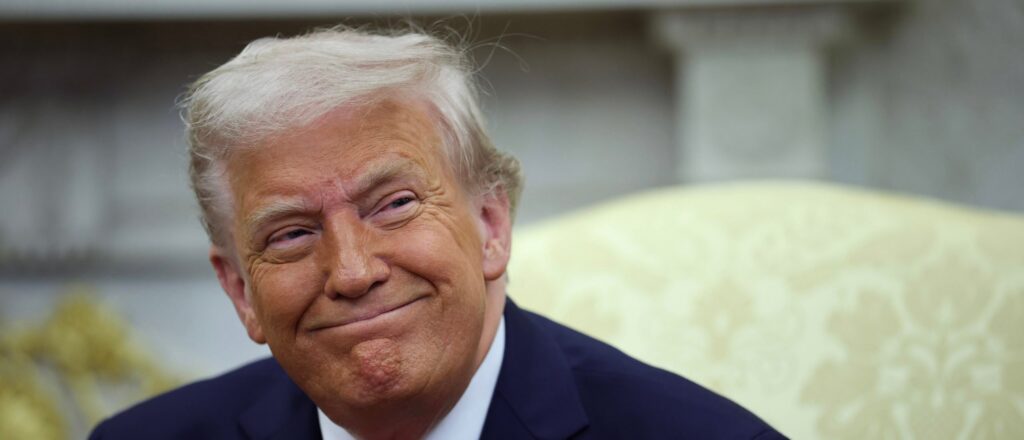Small business owners’ optimism rose slightly in May, according to a survey released Tuesday from the National Federation of Independent Business (NFIB).
The NFIB’s Small Business Optimism Index, a measure of owners’ outlook on the future of their businesses and the economy in general, rose by three points in May to 98.8, slightly above the 51-year average of 98. This marked the first time the NFIB’s Small Business Optimism Index has increased thus far in 2025.
Still, economic uncertainty also increased in May, with the NFIB’s Uncertainty Index reaching 94 in May, up two points from April, according to the survey.
“Although optimism recovered slightly in May, uncertainty is still high among small business owners,” NFIB Chief Economist Bill Dunkelberg wrote in a press release. “While the economy will continue to stumble along until the major sources of uncertainty are resolved, owners reported more positive expectations on business conditions and sales growth.” (RELATED: ‘Won’t Be Able To Afford To Help Anybody’: Rick Santelli Has Warning For Those Who Think Spending Binge Can Last)
“The rise in small business optimism in May, reflected by the NFIB Small Business Optimism Index climbing from 95.8 to 98.8, shows a modest resurgence in confidence among Main Street business owners,” Peter Earle, the director of economics and economic freedom and a senior research fellow at the American Institute for Economic Research, told the Daily Caller News Foundation. “It suggests that the recent stabilization in U.S.-China trade relations is providing relief to small enterprises that are likely to be disproportionately affected by tariffs, supply chain disruptions, and global policy uncertainty. Improved expectations for future sales and better perceived general business conditions were key drivers of the index’s increase, which implies that many firms see the economic environment as becoming more conducive to growth in the near term.”
“Nevertheless, the broader context remains fragile: inventory levels are still low, uncertainty remains elevated — especially regarding trade policy — and firms continue to cite inflation, access to credit, and labor quality as concerns,” Earle added. “In macroeconomic terms, the bounce in sentiment suggests that a soft-landing scenario remains plausible, with aggregate demand resilient enough to support continued expansion. Risk remains asymmetrically tilted to the downside.”
WASHINGTON, DC – APRIL 14: U.S. President Donald Trump smiles as he meets with President Nayib Bukele of El Salvador in the Oval Office of the White House April 14, 2025 in Washington, DC. (Photo by Win McNamee/Getty Images)
The NFIB’s survey comes after the U.S. economy added more jobs than expected in May, according Bureau of Labor Statistics (BLS) data released on June 6. Moreover, some recent surveys have shown that many Americans and small business owners in the U.S. hold a favorable view of President Donald Trump’s handling of the economy during his second term.
The president has vowed to revamp the U.S. economy during his second term, stating in a May 5 memo that his administration is “cutting red tape, keeping taxes low, promoting fair and reciprocal trade practices, and fighting for hardworking Americans.”
“Looking ahead to June, small business sentiment may stabilize or edge slightly lower unless tangible progress is made on the trade and fiscal policy fronts,” Earle told the DCNF. “Labor market pressures are easing, and inflation expectations have moderated, but persistent uncertainty surrounding tariffs and questions about the fiscal impact of the the so-called ‘Big Beautiful Bill’ may still at that point weigh on confidence. Roughly three-quarters of small firms still cite inconsistent trade policy as a major challenge. Additionally, credit tightening across commercial lending channels and signs of fatigued consumer spending may curb business optimism further.”
“From a classical macroeconomic standpoint, sentiment indicators like the NFIB Index serve as early signals of turning points in the business cycle,” Earle added. “Unless policymakers provide greater clarity and economic conditions continue to firm, the bounce seen in May — like the surge we saw in Nov. [and] Dec. 2024, right after the election — may be short-lived.”
All content created by the Daily Caller News Foundation, an independent and nonpartisan newswire service, is available without charge to any legitimate news publisher that can provide a large audience. All republished articles must include our logo, our reporter’s byline and their DCNF affiliation. For any questions about our guidelines or partnering with us, please contact licensing@dailycallernewsfoundation.org.


